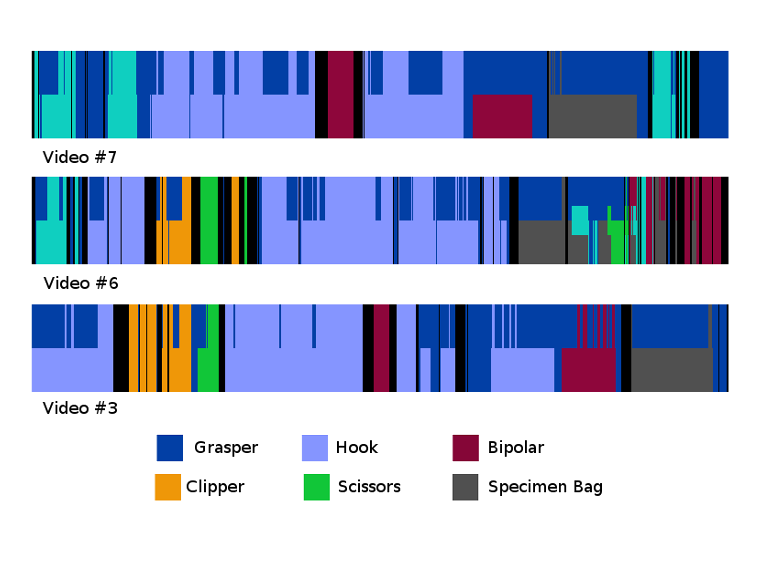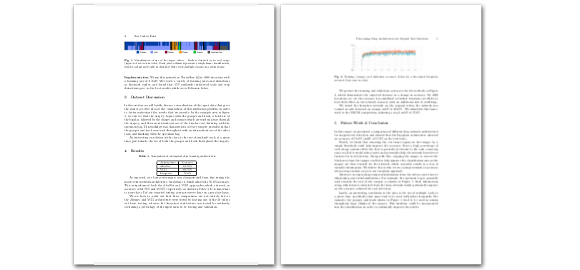
Visualization of some of the training videos.
Abstract
Understanding surgical workflow has been a key concern of the medical research community. One of the main advantages of surgical workflow detection is real time operating room (OR) scheduling. For hospitals, each minute of OR time is important in order to reduce cost and increase patient throughput. Traditional approaches in this field generally tackle the video analysis using hand crafted video features to facilitate the tool detection. Recently, Twinanda et al presented a CNN architecture ’EndoNet’ which outperformed previous methods for both surgical tool detection and surgical phase detection.
Given the recent success of these networks, we present a study of various architectures coupled with a submission to the M2CAI Surgical Tool Detection challenge. We achieved a top-3 result for the M2CAI competition with a mAP of 37.6.
